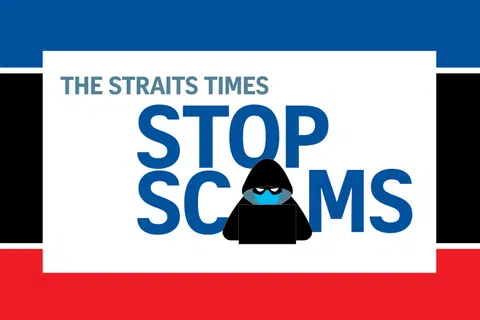NUS student forced to cut family ties, send money in fake police scam
The student also had to report daily activities at all times and record "confession" videos.
A National University of Singapore (NUS) student became the target of a scam in which individuals posing as police officers coerced the student into cutting ties with family and friends, staying under constant video surveillance, and transferring money overseas.
The student also had to report daily activities at all times and record "confession" videos, said the university in a security advisory sent out to students.
NUS, in response to queries from The Straits Times, confirmed on Oct 3 that a police report has been lodged and investigations are under way.
The university declined to reveal more details about the case - such as the content of the "confession", when the incident occurred and the amount of money involved - saying that it is under police investigation.
According to the advisory, the student received an unsolicited text message, followed by a phone call from individuals claiming to be police officers.
Over the following weeks, the scammers maintained constant contact with the victim via phone calls, video chats and messaging apps.
They demanded that the student remain constantly visible on video or available by voice call, report daily activities, and sever contact with friends, family and social media.
Using fabricated documents that appeared to come from government authorities and banks, the scammers pressured the student to transfer money to overseas accounts. They even instructed the student to record "confession" videos.
NUS said in the advisory that scammers often create a false sense of urgency or authority to pressure victims into compliance.
"Do not comply with suspicious instructions, especially those demanding secrecy or money transfers," it said.
Students should verify requests through official hotlines and report suspected scams to the police immediately, it added.
In its response to ST, the university said: "With the prevalence of scams in Singapore, NUS regularly reminds our students to stay vigilant against suspicious activities and supports them through education and awareness, as well as 24-hour hotlines."
It added: "The university places high priority on the well-being of our community as we work together to guard against scams."
The case adds to the growing number of scams in Singapore. Between January and June, $456.4 million was lost to scammers, with almost 20,000 cases reported in Singapore, based on the police's mid-year scam statistics.
Government official impersonation scams remain an area of concern, with 1,762 cases in the first half of 2025. This figure is almost three times the 589 cases reported in the same period in 2024.
Such scams also resulted in the second-highest losses among all scam types, with $126.5 million lost in first half of 2025. This is an 88 per cent increase from the $67.2 million lost in the same period the year before.
The highest losses were from investment scams, totalling more than $145 million in the first half of the year.

Helplines and online resources
ScamShield Helpline: 1799 National helpline for mental well-being: 1771 (24 hours)/6669-1771 (via WhatsApp) scamshield.gov.sg
Gabrielle Chan for The Straits Times